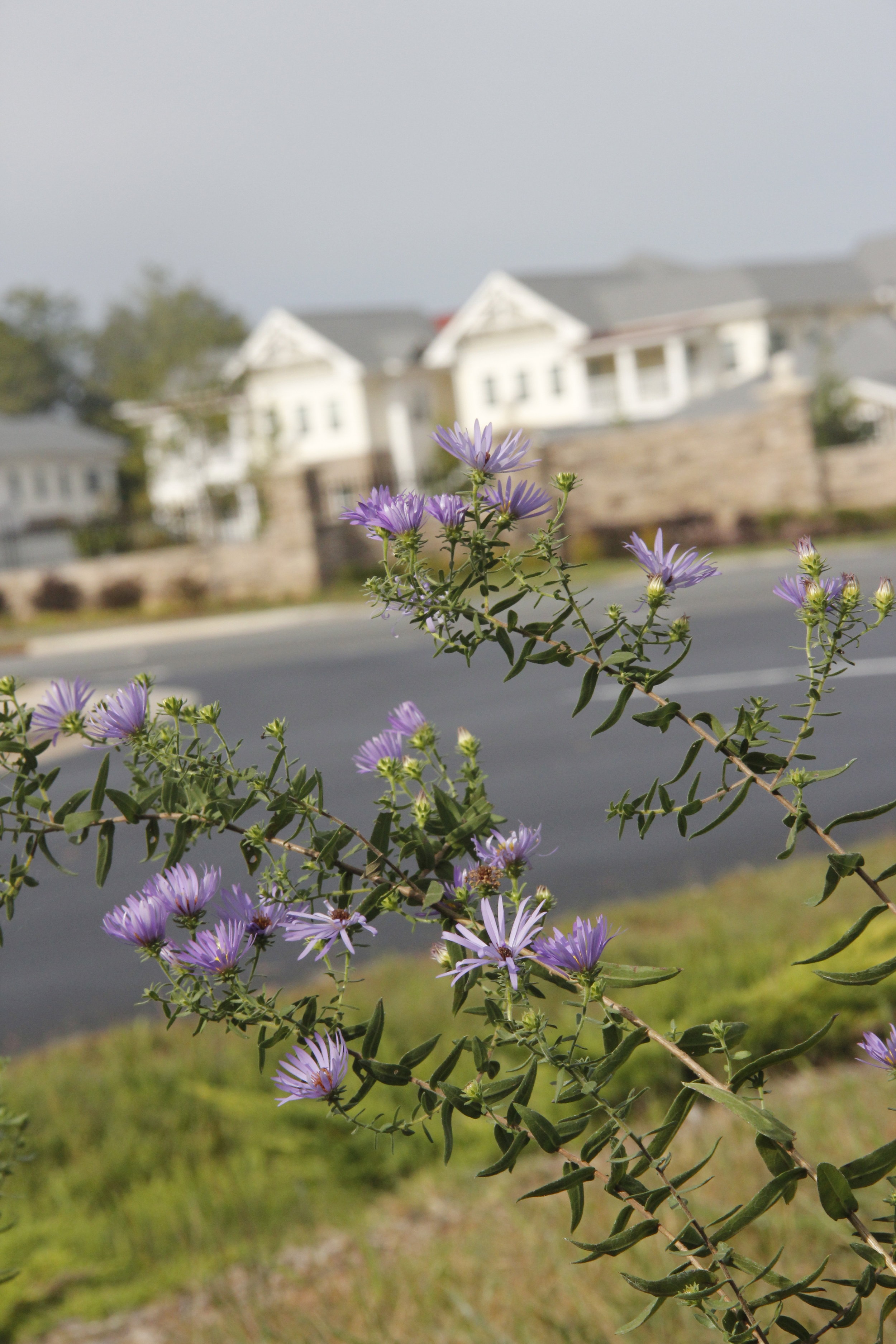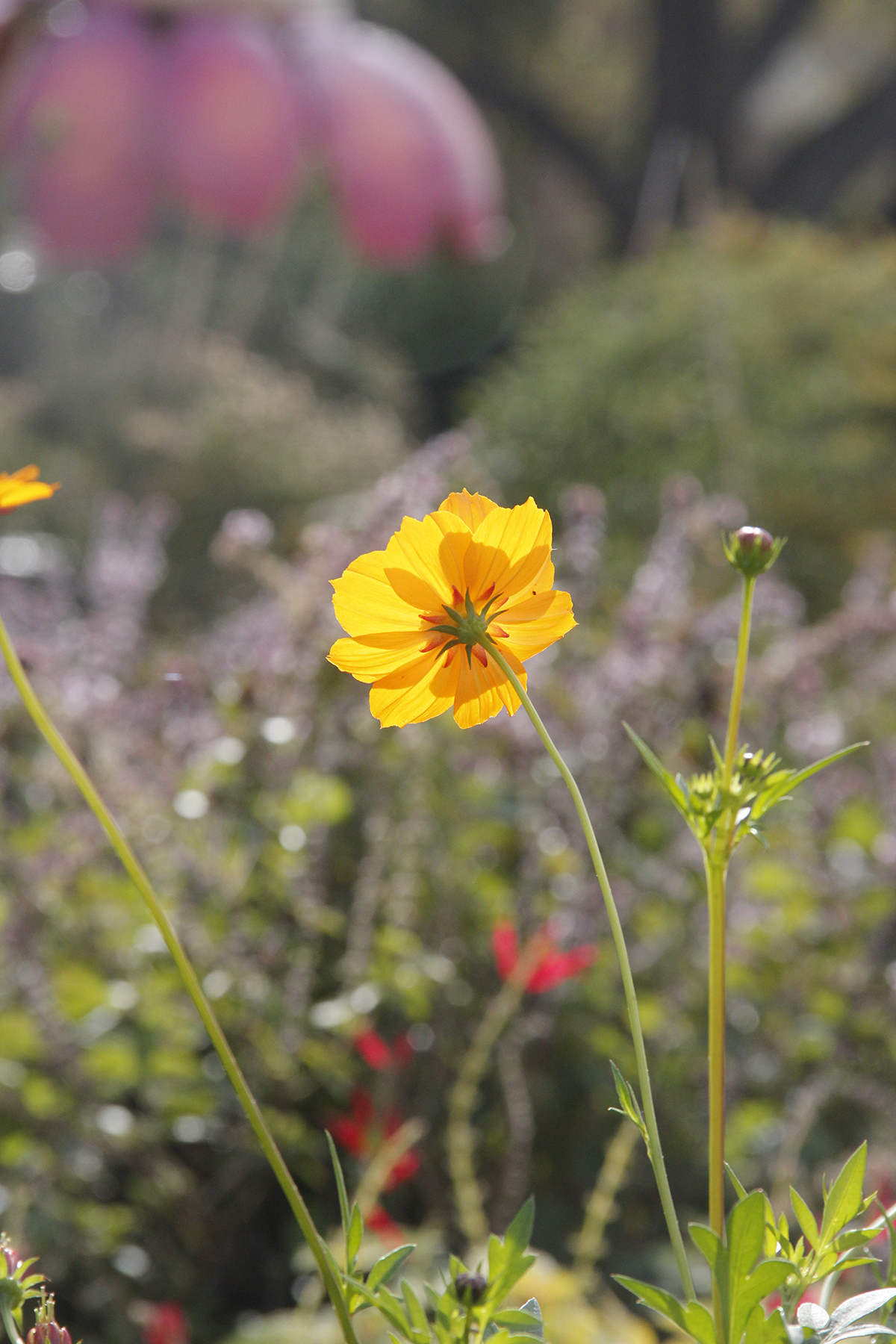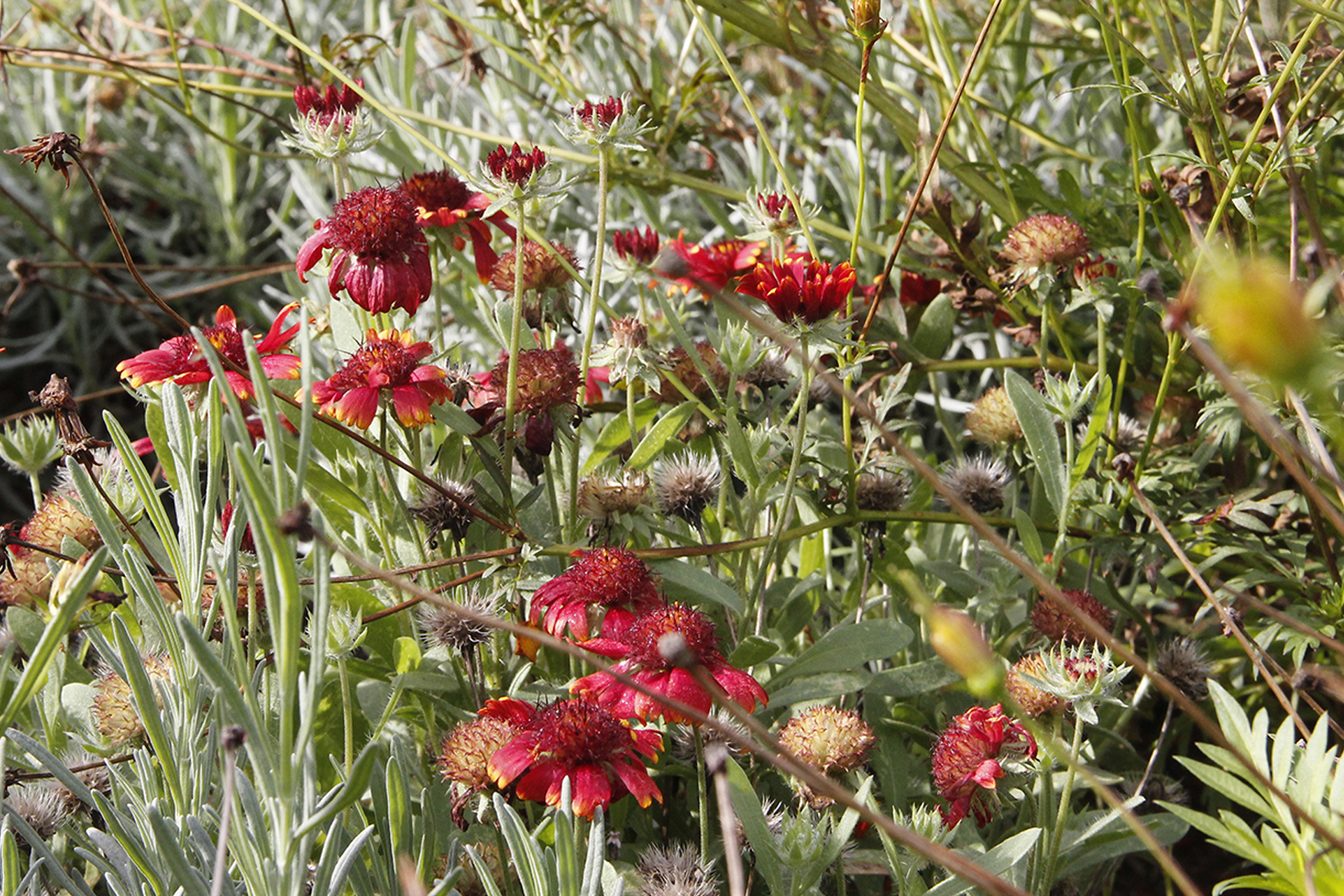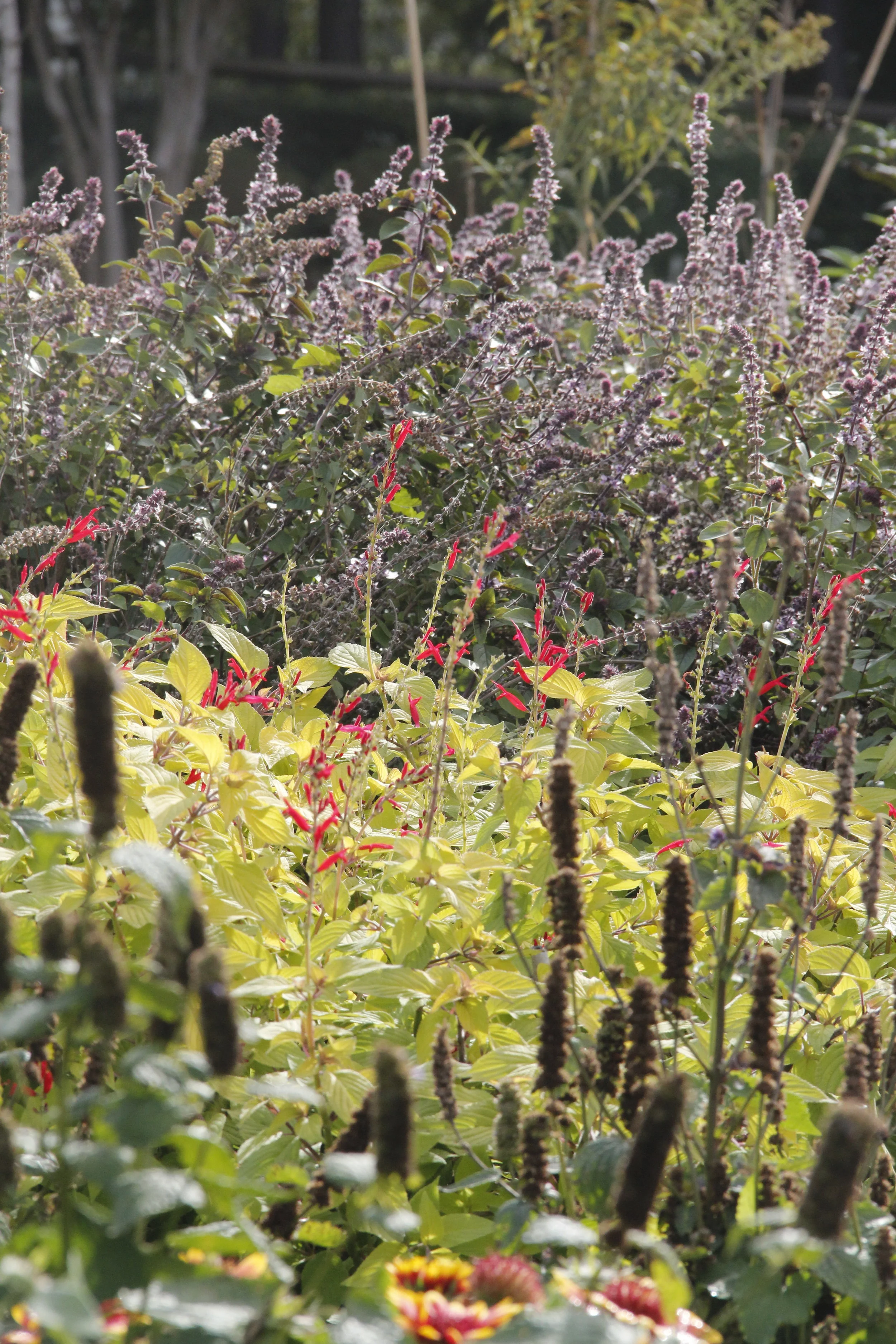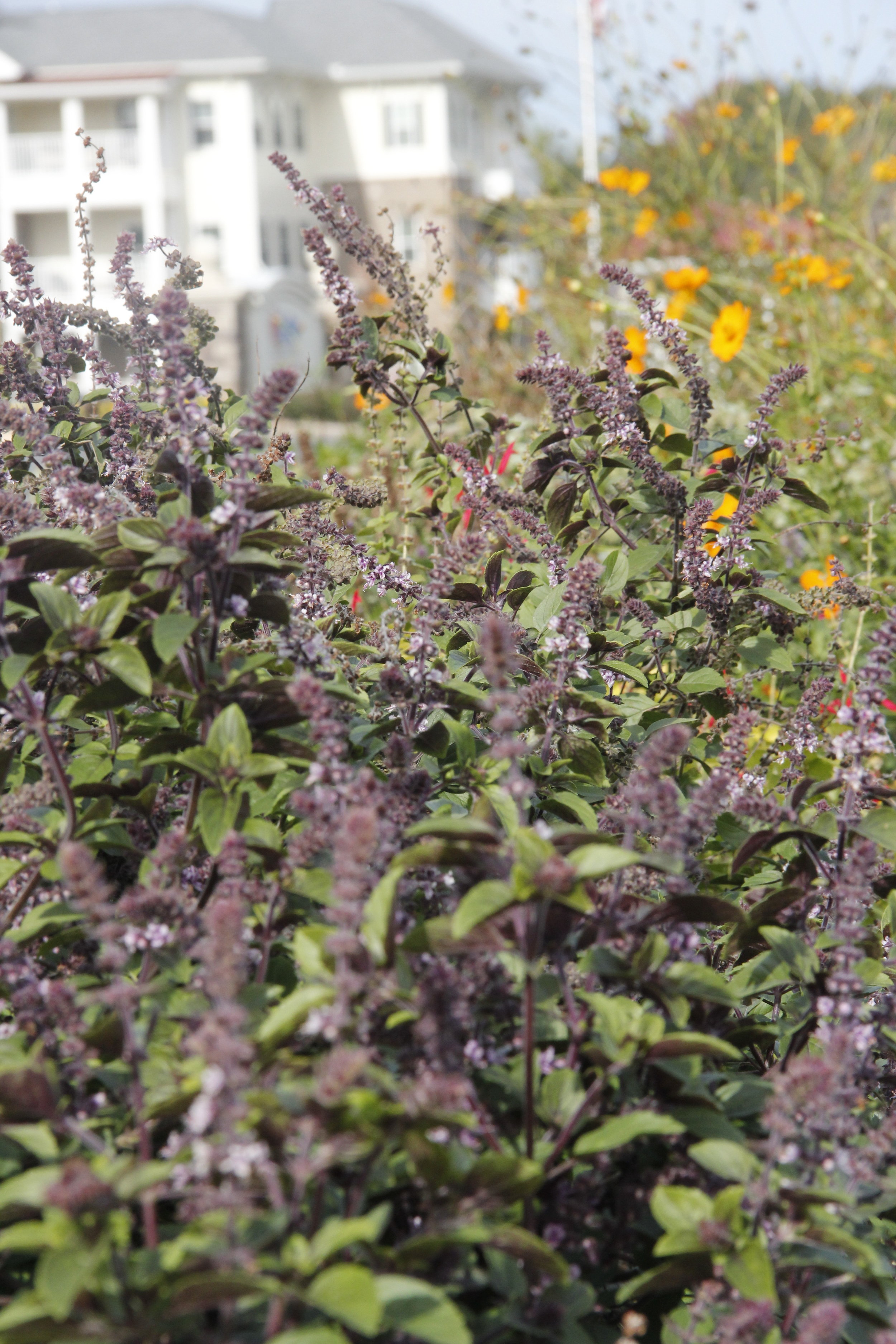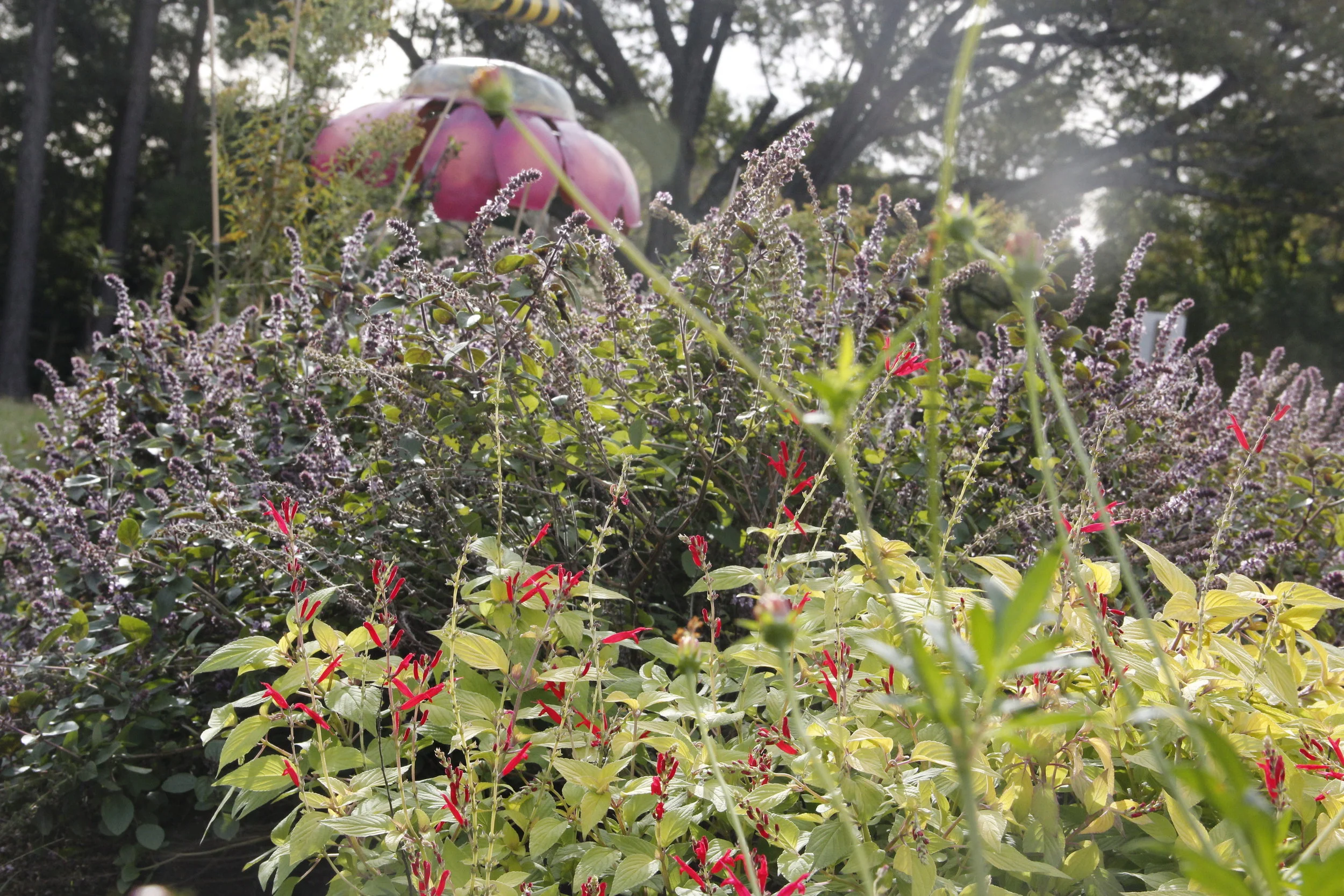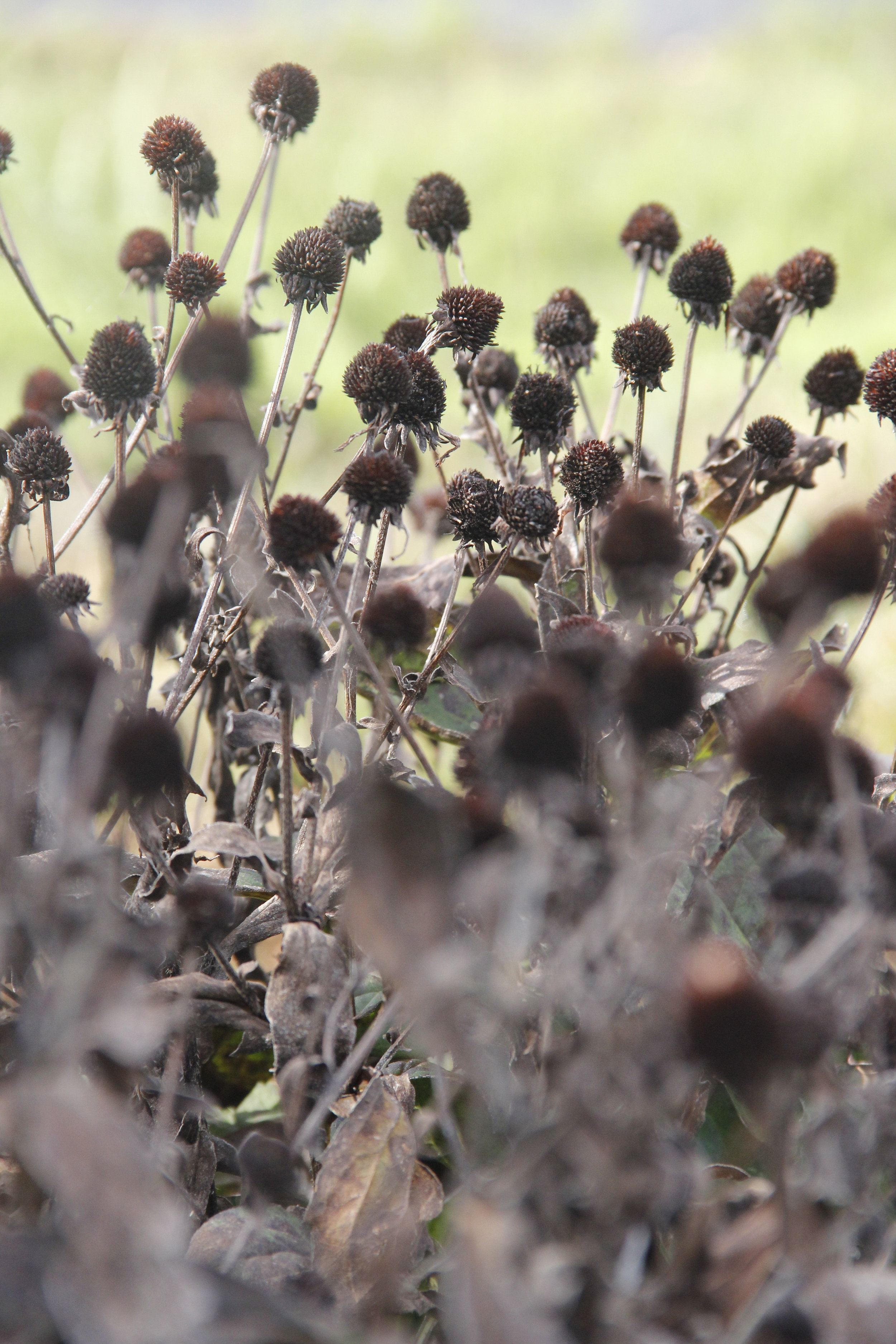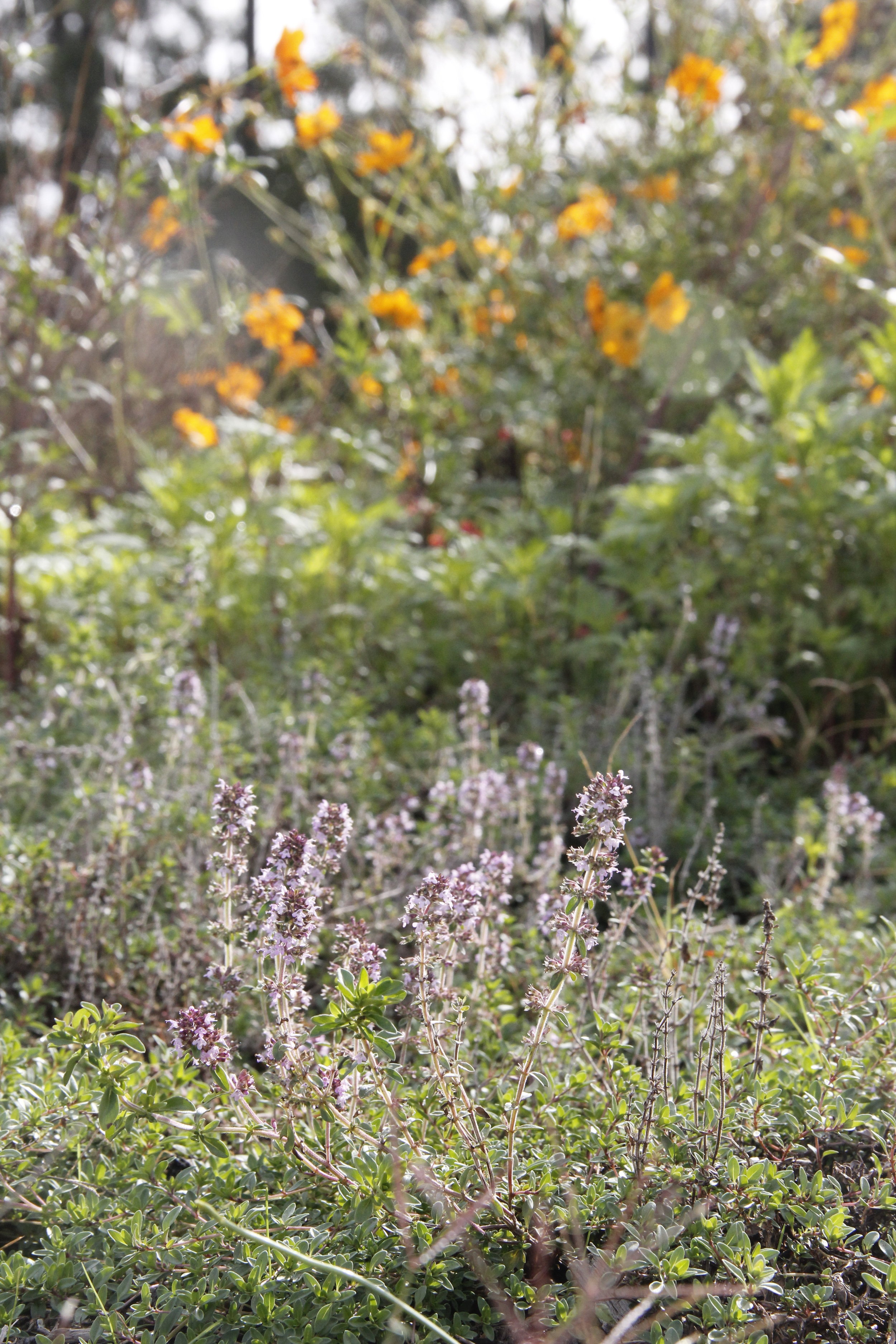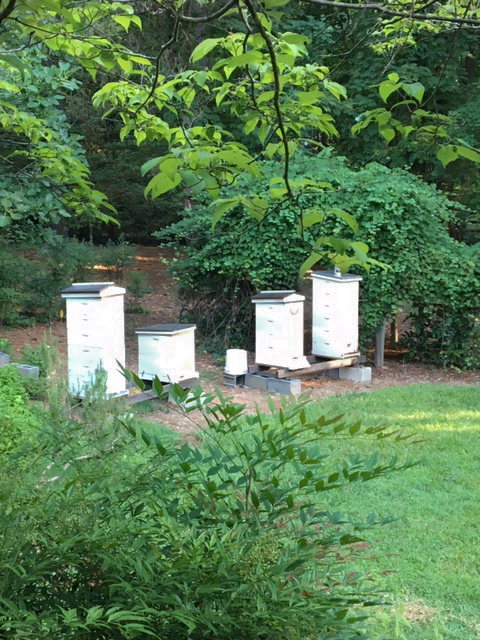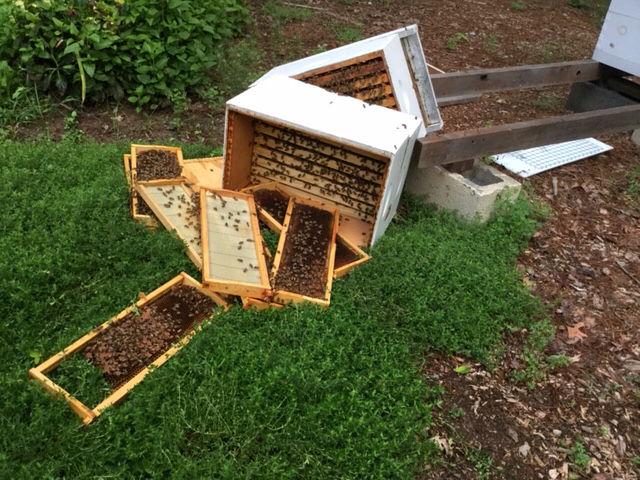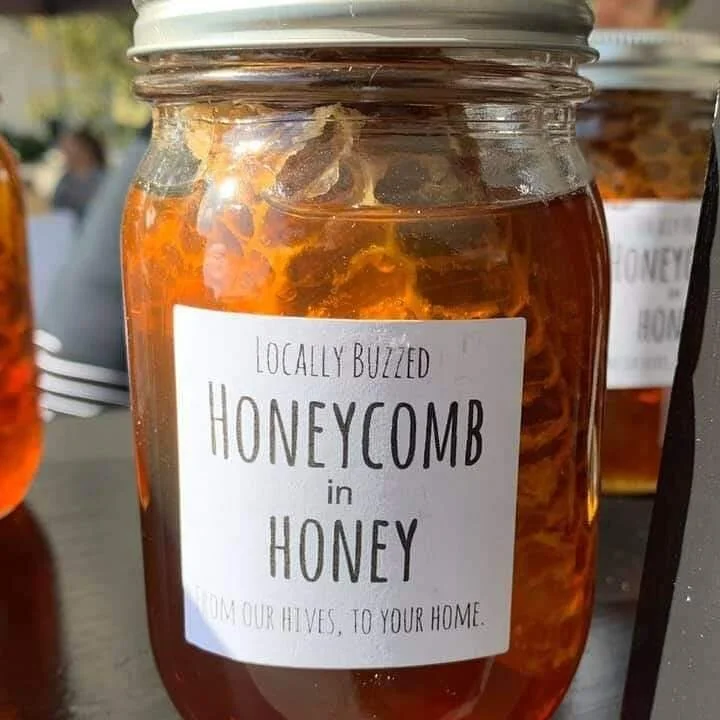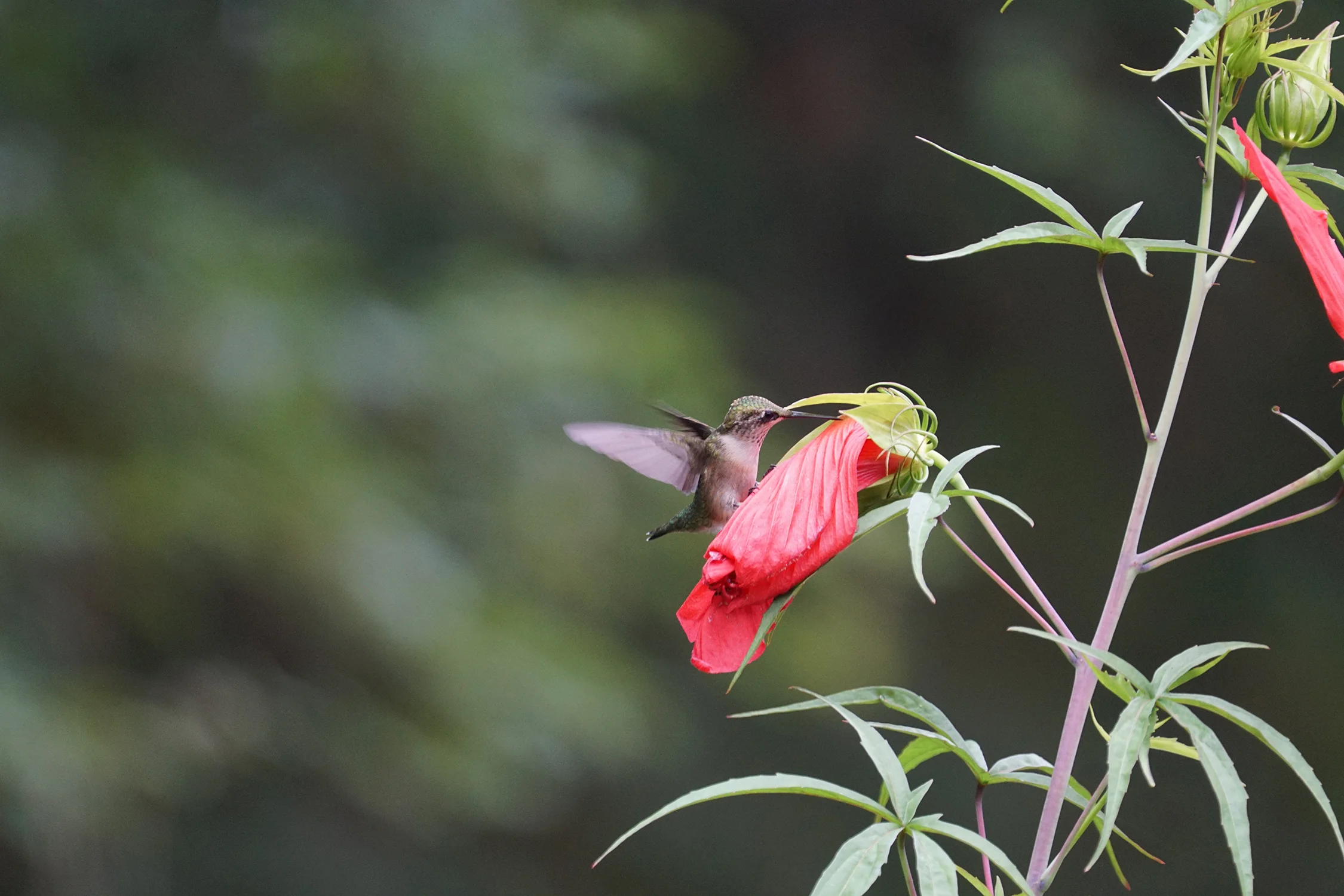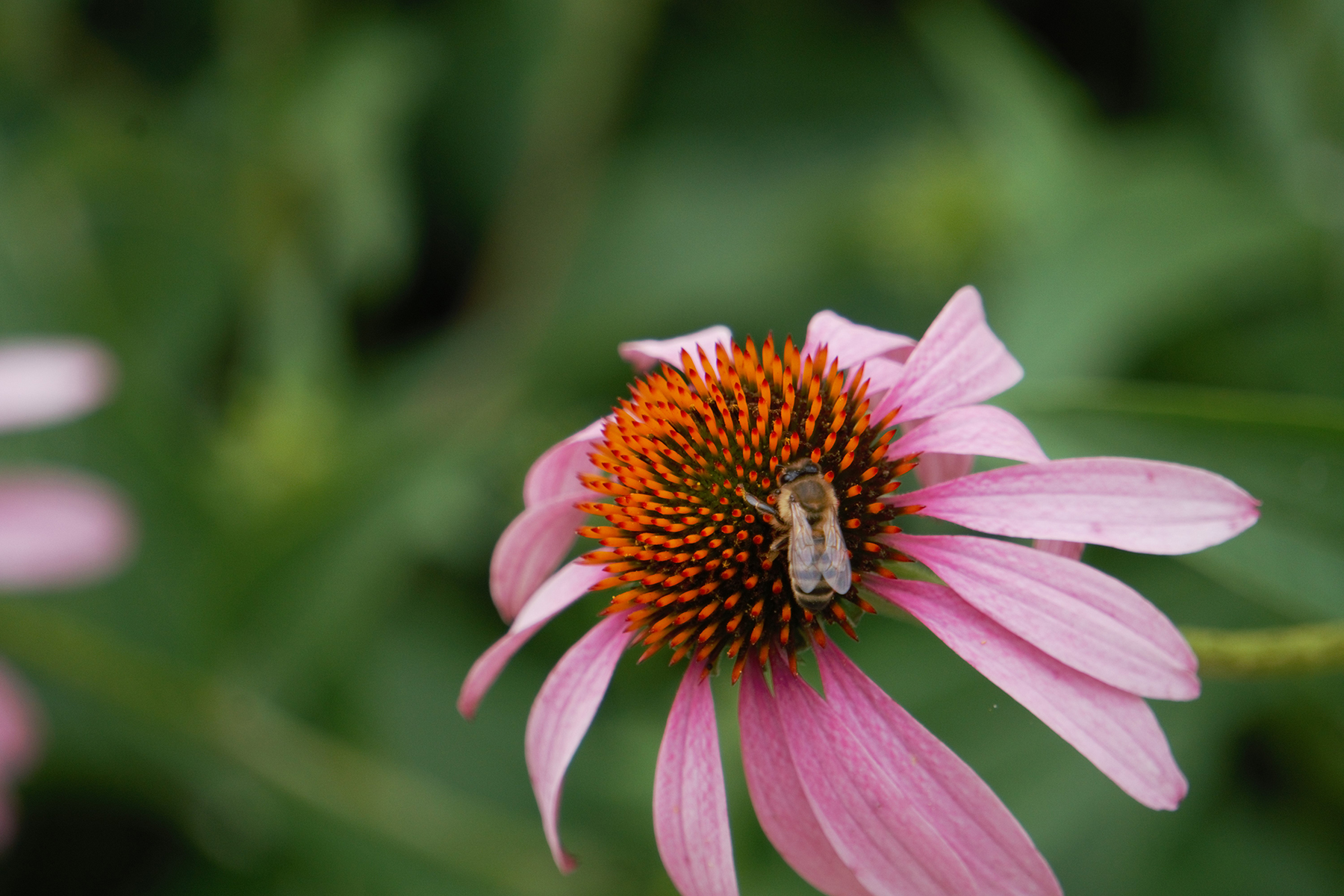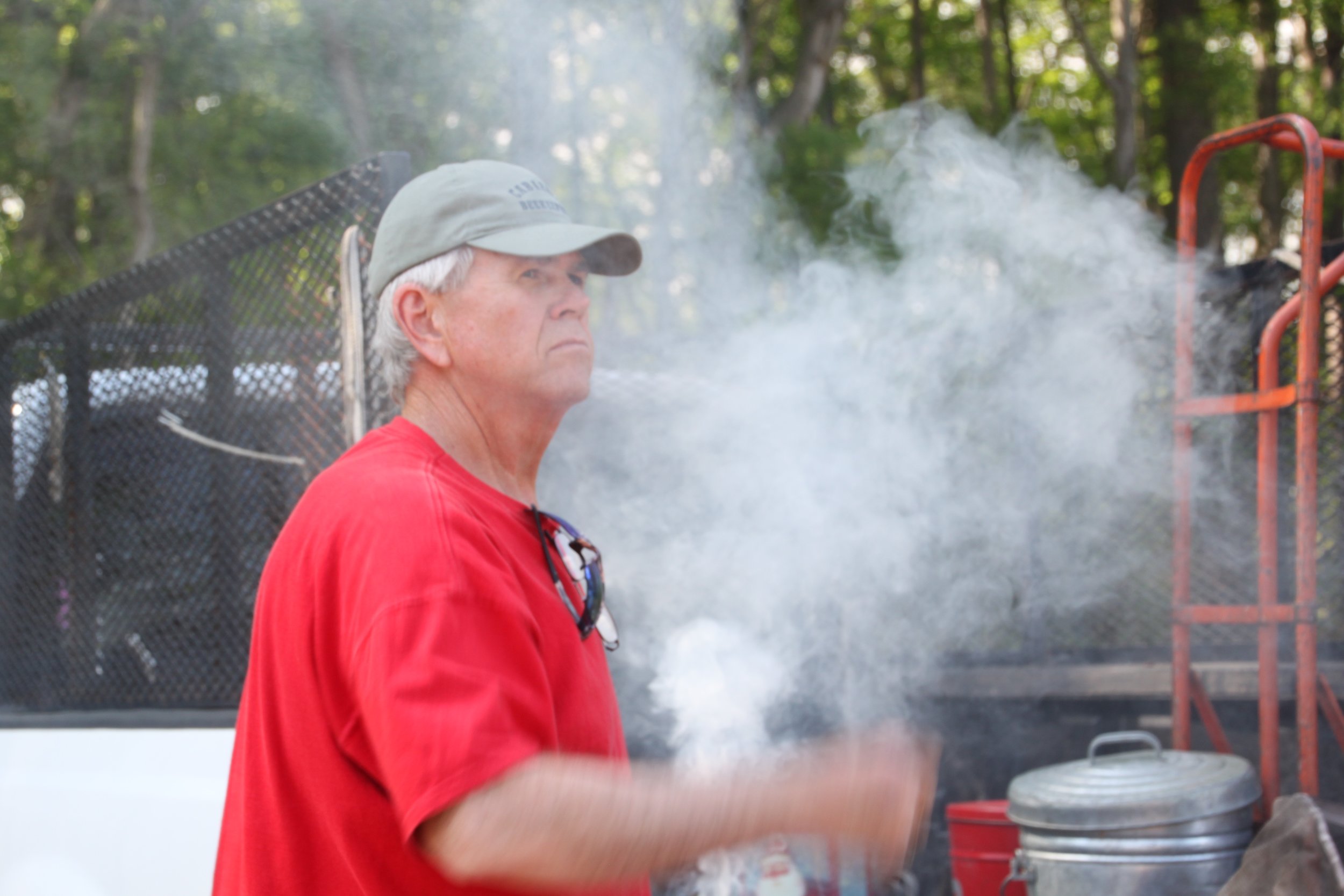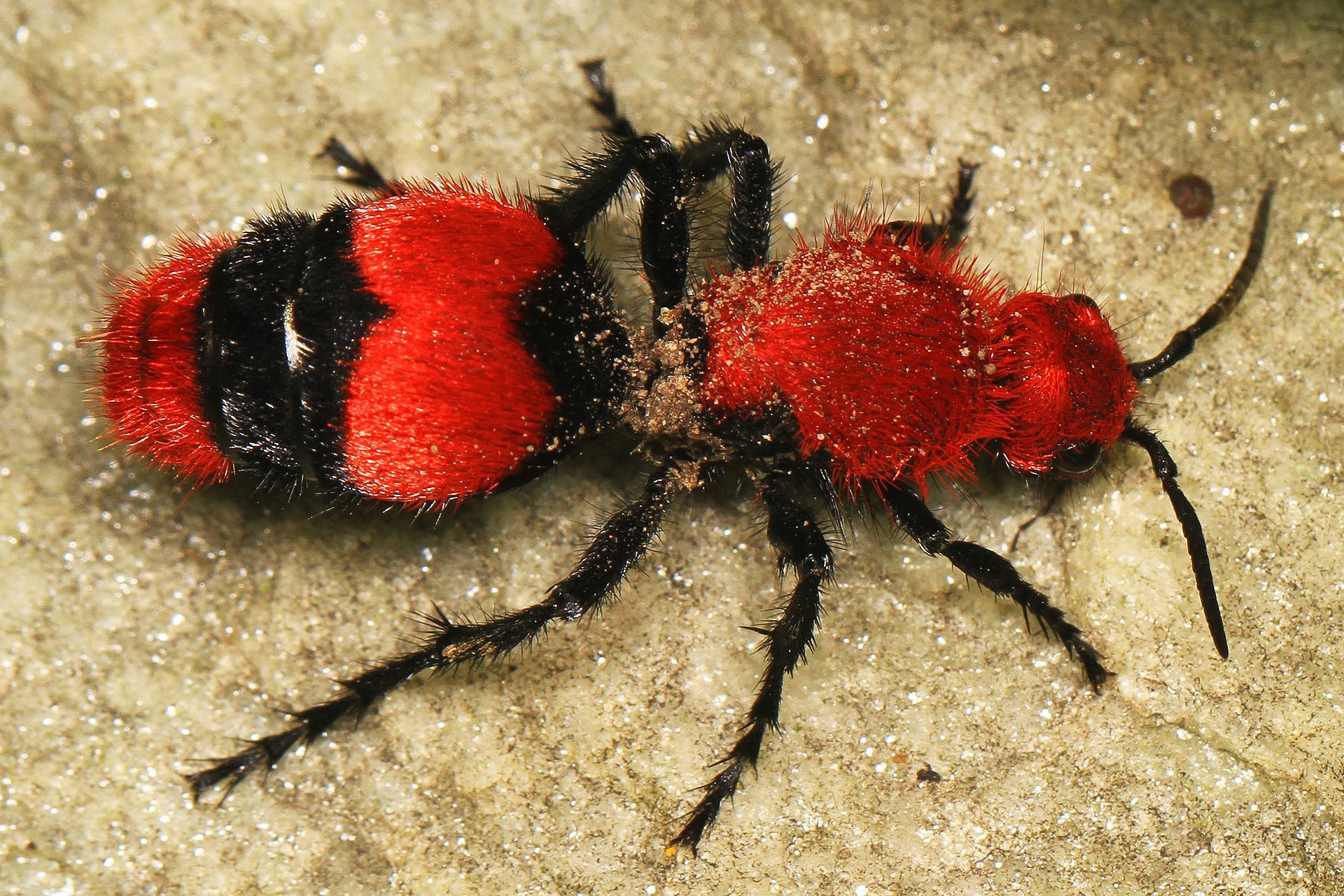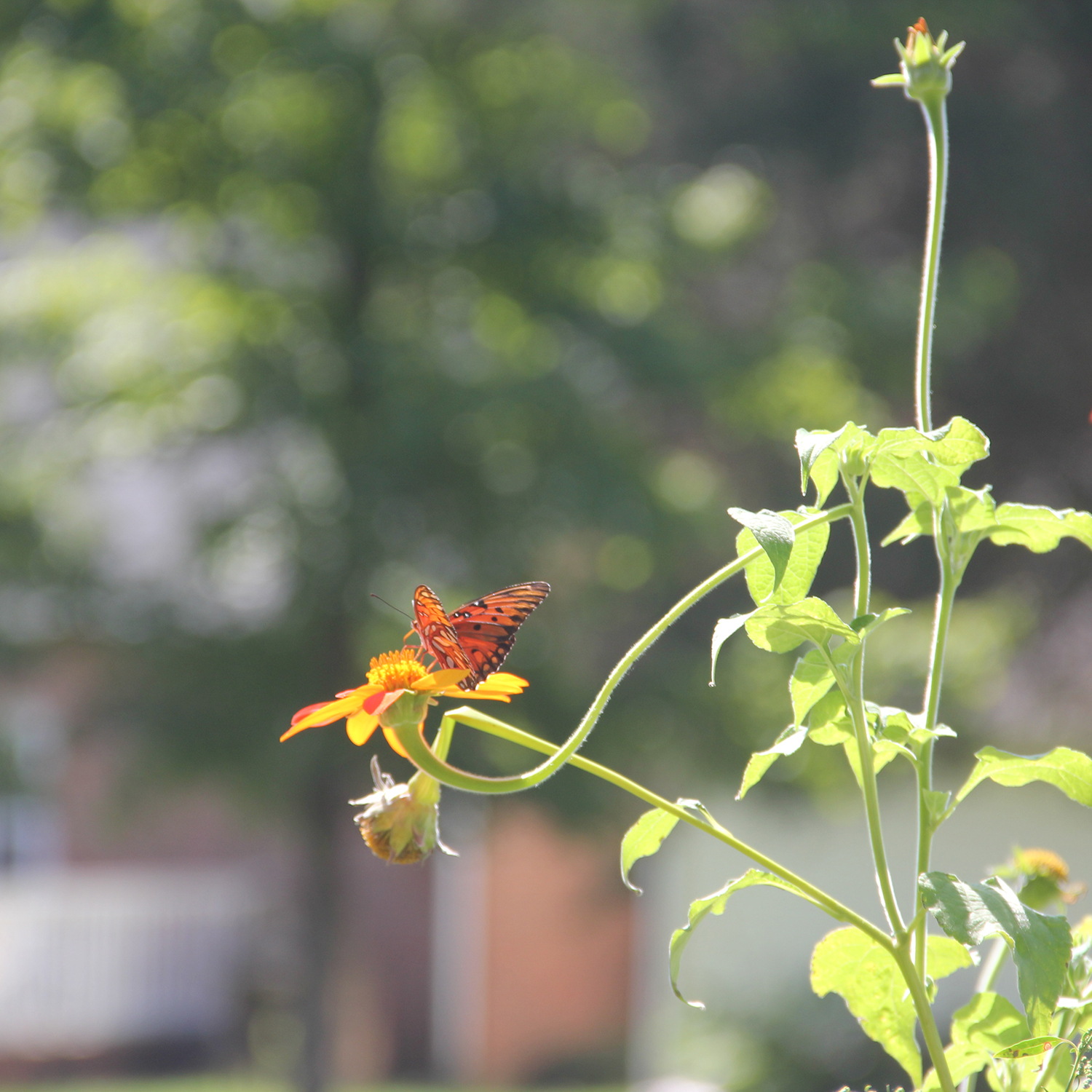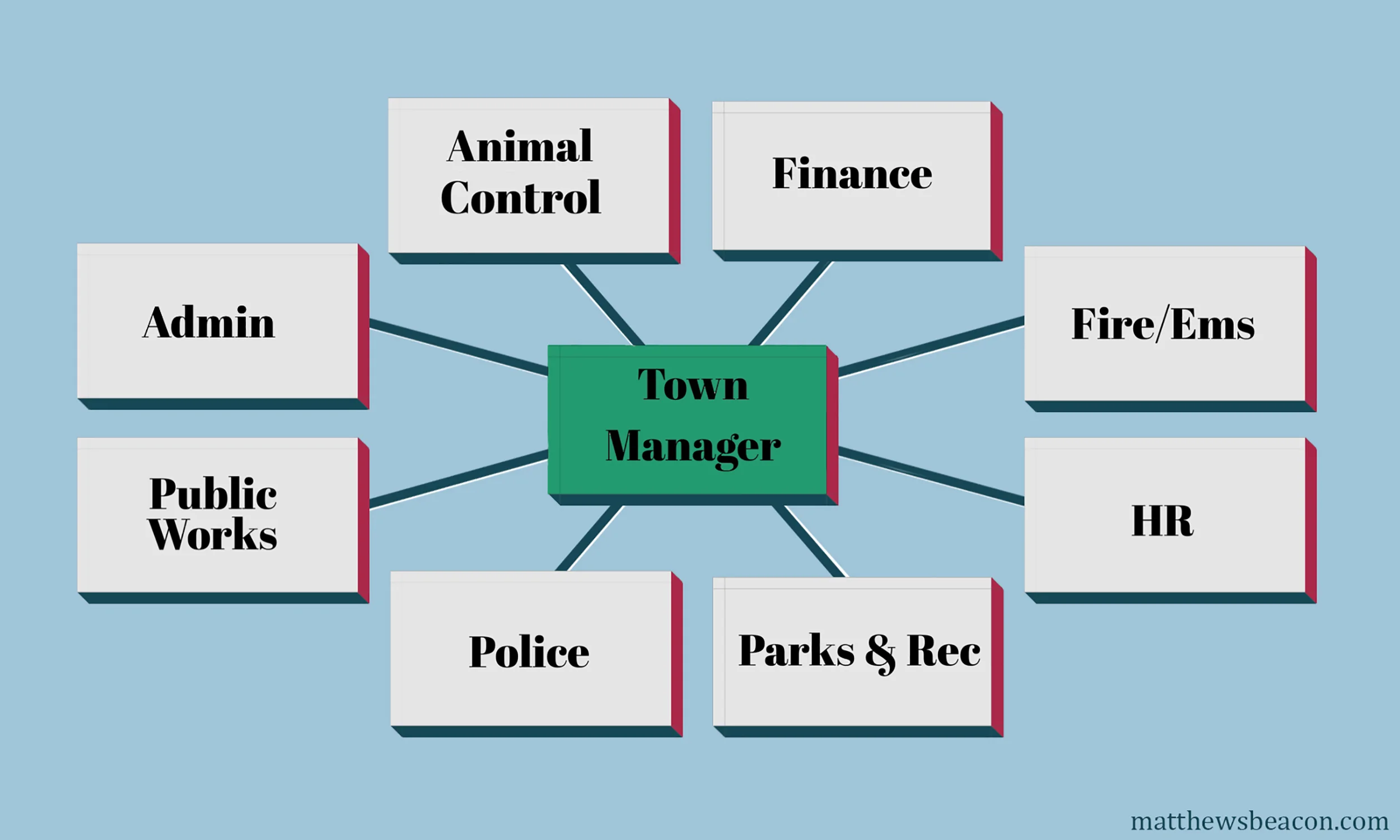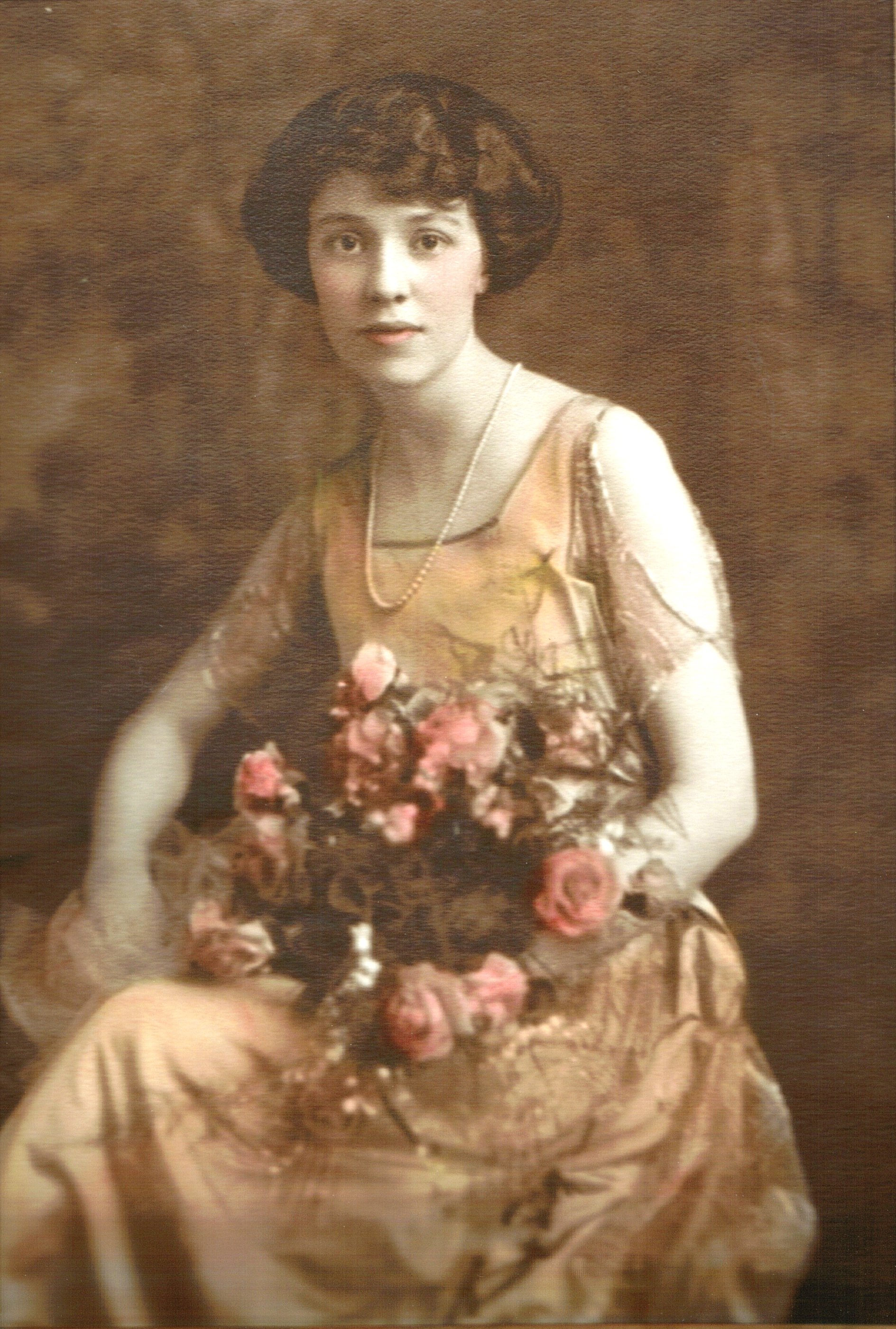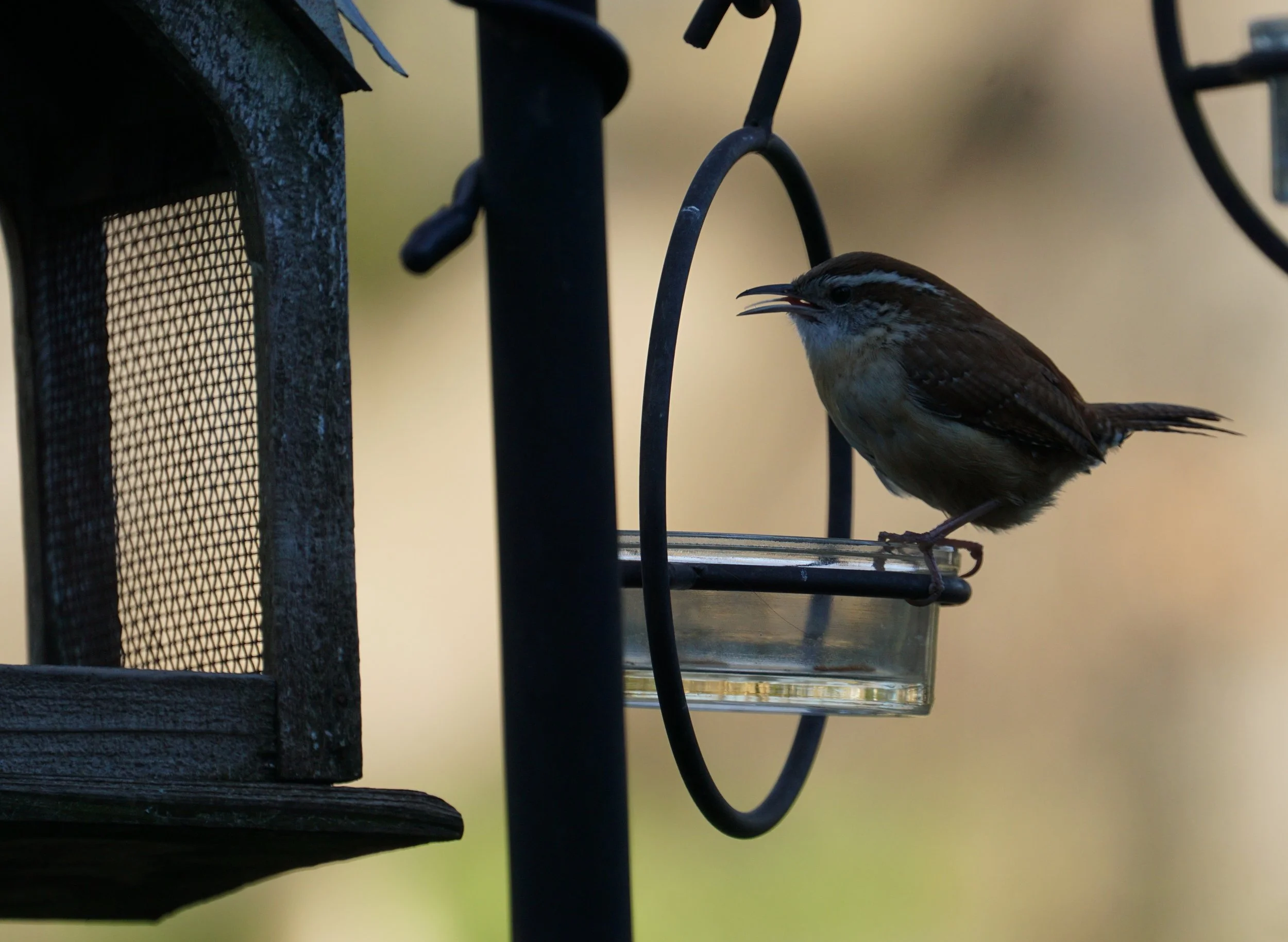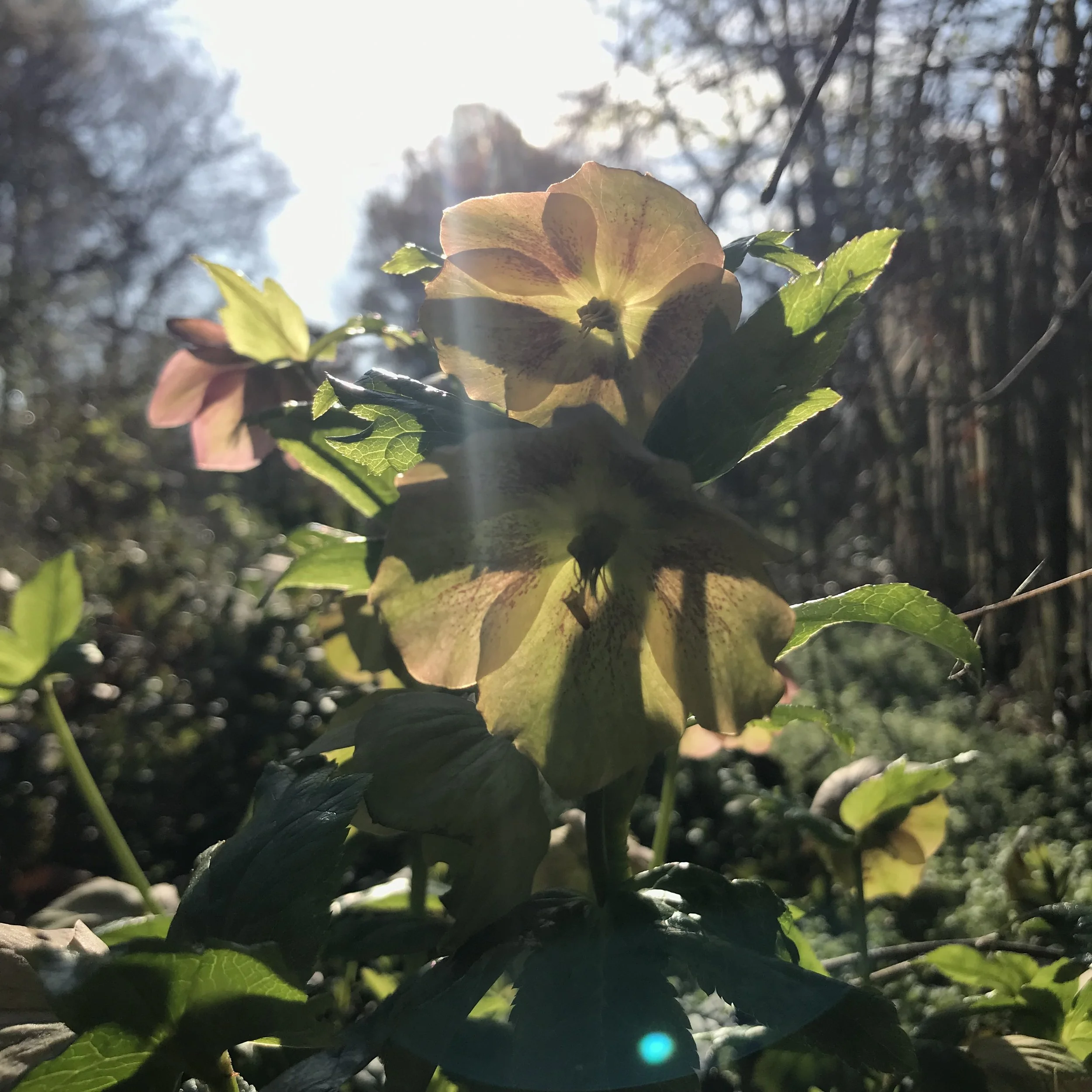Martha Krauss remains one of the most enthusiastic voices and leaders for bee conservancy and preservation in Matthews. A 45-year-resident, Martha’s work has been pivotal to the establishment of Country Place Park Pollinator Garden and to designating the town a Bee City (USA). Her foray into bees was a natural outgrowth of her upbringing, her passions and her interests in nature.
Tell me a little bit about your life? When did you move here? I grew up on a farm in Lancaster County, Pennsylvania. Even as a child, I loved plants – especially herbs. After marrying Will Krauss, a Naval Officer, we lived in Massachusetts and Maryland. Upon his discharge we moved to Ohio for his job, and later his career took us to Pennsylvania, then back to Ohio. During some of those years, I taught Elementary Physical Education. In 1973, we moved to Matthews NC.
“With the help of Carol Buie-Jackson we talked to our town manager, Hazen Blodgett, who is also a beekeeper, the process began. Carol and I made a presentation to the Matthews Town Council and in December 8, 2014, they voted unanimously to become a Bee City USA. We were the fourth town in the nation to become a Bee City USA community. ”
Martha Krauss stands among the pollinator plants at Country Place Pocket Park. Photo by Cyma Shapiro.
What attracted you to being here? Will's job brought us to the south. Matthews was a very different place then with a population of (approximately) 2,000. We found a house on five acres, giving us room to build a barn for our two daughters’ horses. We’ve had goats, chickens, turkeys, dogs and cats at various times. Back then, the road to our house was wooded, had seven houses and a speed limit of 55 m.p.h. Matthews provided a good place to live and raise our family, not to mention that the blue skies and mild winters of North Carolina were a delight!
What were your hopes for being here? To live in a family-friendly town with a sense of community. We have found it to be exactly that.
When did you begin your foray into bees? We became seriously interested about seven years ago and took classes, set up our hive and joined both the Union County and Mecklenburg County Beekeeper Associations.
What did you hope to do with this knowledge? Become successful beekeepers, help the environment, help to educate the public about how important bees are, and to become a part of the beekeeping community.
Why did this become an interest for you? Will and I have always been avid vegetable, flower and shrub gardeners. About seven years ago, we noticed that there were very few bees. Since we knew how important it was to have pollinators for our gardens, we decided to look into bee keeping. One of our friends was already a beekeeper and she helped guide us. After acquiring the equipment and signing up for a class, she spotted a swarm of bees on the Greenway and they became our first bees! We now have three hives and a hive of a beekeeper friend.
You are considered one of the preeminent bee enthusiasts in Matthews. How did you come to this role? After taking the Bee Keepers class, I just started talking to everyone about bees and how important they are to our farms, garden and food supply. I really felt like this was something I could help bring an awareness to, to help the bees.
“One third of our foods rely on bees and thousands of other insects to pollinators to fertilize the plants in order for the plant to produce fruits and vegetables that we eat.”
Will and Martha Krauss’ beehives. Photo by Martha Krauss
Do you see any intersection between your passion for this and, perhaps, a philosophical greater life plan? I have always appreciated the beauty of nature and have found peace and solace in tending a garden. The Mennonite simplicity and living close to the earth, that I learned in my childhood, has stayed with me. Adding the bees, watching their community work in common purpose, has been fascinating. To have them gather pollen from our flowers makes us feel a part of their cycle.
What do you want people to know about bees? Bees are a very important component of growing plants. One third of our foods rely on bees and thousands of other insects to pollinators to fertilize the plants in order for the plant to produce fruits and vegetables that we eat.
What would you like people to do with bees? I would like them to respect bees and acknowledge their importance. Honey bees are very focused on their jobs and typically won't bother you unless you bother them. Should a honey bee sting, she dies. Bees are very susceptible to pesticides and herbicides. Through education, the goal is to reduce and ideally eliminate their use to help save the bees.
It would be good for people to plant a variety of flowers that have different bloom times. By doing that it provides a food source, pollen and nectar for them to feed their hive as well as make honey. Our climate allows us to have something blooming every day of the year!
I understand that you worked hard to help make the town a “Bee City” USA? Tell me more about your desire to do so? I first heard about the Bee City USA designation through the Mecklenburg Beekeepers Association Newsletter. With the help of Carol Buie-Jackson we talked to our town manager, Hazen Blodgett, who is also a beekeeper, the process began. Carol & I made a presentation to the Matthews Town Council and in December 8, 2014, they voted unanimously to become a Bee City USA. We were the fourth town in the nation to become a Bee City USA community. Each year we must send a report for an annual renewal.
There are now 115 certified city and campus affiliates across the nation. Bee City/Campus USA is joining forces with the Xerces Society for Invertebrate Conservation, the largest pollinator protection organization in the world! As of June 30, 2018, Bee City USA will formally become an initiative of Xerces, leveraging Xerces’ 46-year history in support of Bee City USA’s continued growth.
“My first passion in plants was herbs. The lore, utility and fragrance were three of the most fascinating aspects of herbs for me. ”
What are some of the annual events you offer? We participate in Earth Day in the Spring, KIND (Kids in Nature Day) in the Fall and have a booth two times a year at the Matthews Farmers Market. Matthews Park & Recreation constructed the Country Place Pocket Park at the corner of Country Place and South Trade St.
Who else has been instrumental in the creation and upkeep of the pollinator garden at Country Place Pocket Park? At the request of Matthews Bee City USA, they prepared a place for us to plant a Pollinator Garden. Many of the plants I already grew in our own garden and others were purchased with help from a grant from Duke Energy. The planting and upkeep was done by Matthews Bee City USA friends and Cross & Crown Boy Scout Troop 140. A Boy Scout is now looking at the possibility of expanding and edging the garden for an Eagle project.
Photo of one of the gardens at the Krauss home. Photo by Martha Krauss
Do you regularly attend local events? Initially, Will and I took a class on beekeeping in Union County. It was a good introduction and we try to attend local workshops. There are classes to become certified and master beekeepers. We attend Mecklenburg Beekeepers Association meetings and sometimes the Union County Beekeepers. They are very informative with different programs and it is also a good time to talk to other beekeepers. There is an old joke that says if you have five beekeepers talking, you will have seven opinions!
What do you want people to know about you? My first passion in plants was herbs. The lore, utility and fragrance were three of the most fascinating aspects of herbs for me. For some years I propagated mostly unusual herbs by cuttings and sold them to a couple of local hardware stores and to Wing Haven for their Spring Sale. I grew over sixty different kinds of herbs and also did programs. For a couple of springtimes, I worked on Saturdays at Renfrow hardware to help teach customers about herbs. I was “The Herb Lady.”
What are your intentions for the future? After 20 years in business we have retired from our Bed & Breakfast that we hosted in our home. Our plan is to stay here in Matthews and enjoy working in our gardens, with the bees. We enjoy travel and want to continue that. We have visited all fifty states, now.
One of the Krauss hives that was possibly toppled by a hungry or curious bear. Photo by Martha Krauss
What are your hopes for the future of Matthews (and bees)? We hope that the town continues with good stewardship and that Matthews Bee City USA will continue to provide opportunities to teach about honey bees and pollinators. Residents need to be aware of the problems caused by pesticides and herbicides for our bee population. While sprays can serve a purpose, it is important that they not be used indiscriminately.
